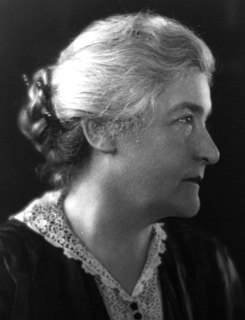A Quote by Sandra Day O'Connor
The more education a woman has, the wider the gap between men's and women's earnings for the same work.
Related Quotes
Most women without children spend much more time than men on housework; with children, they devote more time to both housework andchild care. Just as there is a wage gap between men and women in the workplace, there is a "leisure gap" between them at home. Most women work one shift at the office or factory and a "second shift" at home.
Women while in college ought to have the broadest possible education. This college education should be the same as men's, not only because there is but one best education, but because men's and women's effectiveness and happiness and the welfare of the generation to come after them will be vastly increased if their college education has given them the same intellectual training and the same scholarly and moral ideals.
Increasingly, men are realizing exactly that - that having an educated, economically independent partner reduces the pressure on them to be the sole provider. Many men are also beginning to understand that participating in housework and childcare can be rewarding. Women with higher education and/or earnings are so much less likely than other women to divorce, that by age 40, they are more likely to be married than any other group of women.
What works for men does not always work for women, because success and likability are positively correlated for men and negatively correlated for women. That's what the research shows. As a man gets more successful, everyone is rooting for him. As a woman gets more successful, both men and women like her less.
































